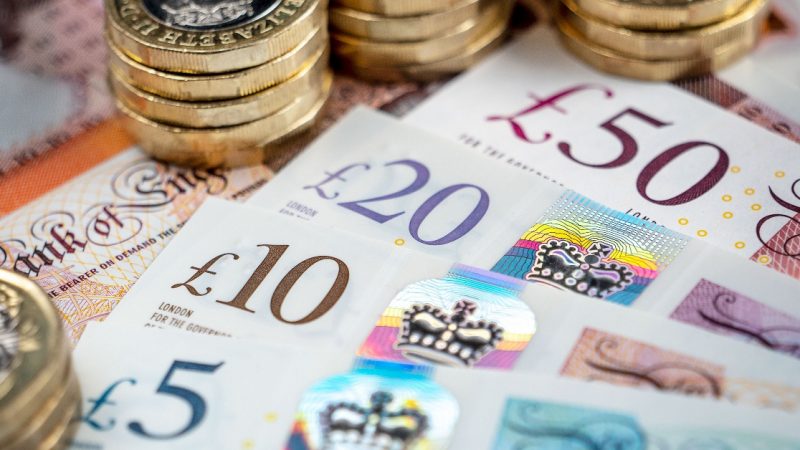The system is loaded against workers

A system of progressive taxation should reduce inequalities and redistribute income and wealth to create possibilities of economic renaissance. The UK tax system for income and capital gains is regressive and does the reverse. It levies lower taxes on the rich and deepens inequalities. Yet no major political party wants to reform the unjust tax system.
In England and Ireland, for the tax year 2023-24 employees and self-employed workers get an annual tax-free personal allowance of £12,570. Earned income in the form of wages and salaries above that are taxed at rates between 20% and 45%. A basic rate of 20% is paid on annual income between £12,571 and £50,270; 40% on incomes between £50,271 and £125,140; and 45% on incomes over £125,140. In addition, most workers pay national insurance contributions (NIC) at the rate of 12% on income between £12,570 and £50,270, and 2% on income above £50,271.
Tax rates for unearned income are lower. A good example is this is capital gains accruing to the wealthy from the sale of second homes, investments, artwork, antiques, businesses and clever bets on the movements of the price of commodities, exchange rates and interest rates. The first £6,000 is tax free. The remainder is taxed in the range of 10% to 28%. The beneficiaries of capital gains use the National Health Service and social care but do not pay any national insurance.
The system is loaded against workers. The table below compares the position of a worker earning median annual income of £32,000, and a speculator with £32,000 of capitals gains.
| Worker (£s) | Speculator (£s) | |
| Gross Income | 32,000 | 32,000 |
| Less Personal Allowance | (12,570) | |
| Less Capital gains allowance | (6,000) | |
| Taxable Income (A) | 19,430 | |
| Chargeable Gain (B) | 26,000 | |
| Income tax at 20% on (A) | (3,886) | |
| Capital Gains Tax at 10% on (B) | (2,600) | |
| National Insurance at 12% on (A) | (2,332) | Not applicable |
| Total tax and NI | (6,218) | (2,600) |
| Net Income | 25,782 | 29,400 |
A speculator on median income takes home £3,618 more than the worker. The worker effectively pays 19.4% of his/her wage in income tax and national insurance. In contrast, the speculator pays only 8.1% of his/her gain in tax. No national insurance is paid and the speculator effectively has a free ride.
HMRC’s most recent capital gains statistics show that for the year 2021-22 a total of 394,000 taxpayers reported chargeable gains of £92.4bn and paid £16.7bn in capital gains tax, which is an effective rate of just over 18%.
Around 214,000 people paid the tax on gains of up to £25,000. The biggest winners are the ultra rich. Some 45% of CGT came from those with gains of £5m or more. This group represents less than 1% of CGT taxpayers. If they had earned income of £5m or more, they would certainly be paying tax at the marginal rate of 45%, but the highest rate of tax on gains from investments is 20%, and 28% for gains from property. So, there is a considerable reduction in tax liability of the richest and they have economic incentives to seek out accountants and lawyers to help them convert income into capital gains.
London and the South East of England accounted for around half of total gains (49%) and tax liability (51%). The capital gains tax perk inevitably deepens regional inequalities and runs completely contrary to the government’s claims of levelling-up and reducing regional disparities.
Both earned and unearned income gives identical access to goods and service and should be taxed at the same rates. In 1988 Conservative Chancellor Nigel Lawson did just that by aligning capital gains and income tax rates and said that there is “little economic difference between income and capital gains”. In doing so he destroyed a number of tax avoidance schemes which enabled the wealthy to convert income into capital gains. Subsequent Chancellors appeased the rich lobby and differential rates have been re-established.
A 2021 study estimated that by aligning capital gains and income tax rates, around £17bn a year in additional tax revenues can be raised. By charging national insurance, probably another £8bn can be raised. £25bn can go a long way towards reducing inequalities. But who will be public spirited enough to eliminate the tax perks of the rich? The Conservative government won’t align the tax rates. Will the next Labour government do it?
Shadow Chancellor Rachel Reeves said that “Labour has no plans to increase capital gains tax”. The rationale is that “There are people who have built up their own businesses who maybe at retirement want to sell that business. They may not have had huge income through their life if they’ve reinvested in their business, but this is their retirement pot of money”.
The political posturing perpetuates social inequities and raises a few questions:
- Why is earned income taxed at a higher rate than unearned income?
- Why does the tax system penalise workers?
- Why are speculators not required to pay national insurance?
- Why must millions of workers and their families bear the cost of appeasing a few rich people?
Prem Sikka is an Emeritus Professor of Accounting at the University of Essex and the University of Sheffield, a Labour member of the House of Lords, and Contributing Editor at Left Foot Forward.
To reach hundreds of thousands of new readers and to make the biggest impact we can in the next general election, we need to grow our donor base substantially.
That's why in 2024, we are seeking to generate 150 additional regular donors to support Left Foot Forward's work.
We still need another 124 people to donate to hit the target. You can help. Donate today.



